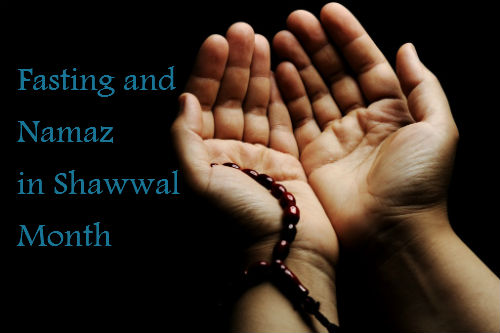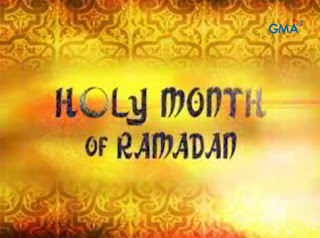Fasting the Six Days of Shawwal
Fasting six days of Shawwal from second day of Shawwal month has lots of Blessings and immense reward. These six days fastings are Sunnah, not wajib.
The person who fasts these six days will rewarded with the rewards of fastings for 1000 fast. Fire will be haram for this person and his ammal (judgement day report) will be filled with immense rewards.
Its not compulsory that a person has to keep the six fasts continuously. He can keep it as per his convenience but it must be done in the same month of Shawwal.
Namaz (Salat and Dua) in Shawwal Month
1) 4 Rakats (2 Salams)
In the first night (After Isha Namaz) of Shawwal month, Pray 4 Rakats with 2 Salams.
In every Rakat, read Sureh Fatiha once and Sureh Iqlas 21 times.
Rewards: Allah will open doors of Janah (Heaven)for this person and close the doors of Jahanam (Hell)
2) 4 Rakats (2 Salams)
In the first night (After Isha Namaz) of Shawwal month, Pray 4 Rakats with 2 Salams.
In every Rakat, read Sureh Fatiha once and Sureh Iqlas, Sureh Falaq and Sureh Naas 3 times.
After Salam Read 3rd Third Kalma (Tamjeed) 70 times given below and repent for his sins in dua
Subhanallahi Wal Hamdulillahi Wa Laa ilaha illal Laho Wallahooakbar. Wala Haola Wala Quwwata illa billahil AliYil Azeem.
Rewards: Allah will forgive his sins and his repentance will be accepted. Insha Allah
3) 8 Rakats (4 Salams) | Namaz on Eid Ul Fitr
On the first day of Shawwal (Day of Eid) after Zuhr Namaz in Afternoon Pray 8 Rakats with 4 salam. In Each Rakat, Read Sureh Fatiha once and Sureh Iqla 25 times.
After Salam Read Subhan Allah 70 Times, Astagfirullah 70 times and below Darood sharif 70 times
Allahumma salli-ala muhammadin nabiyil ummiyi wa-ala alaihi wa ashabihi wa barik wa sallam
Rewards: Allah will grants 70 wishes in this world and 70 wishes on the judgement day and the doors of Rehmat will be opened for him. Insha Allah
Hadiths on Shawwal Fasting (Roza)
1) Sayyiduna Ayyub (Allah be pleased with him) relates that the Messenger of Allah (blessings and peace be upon him, his family, and companions) said,
“Whoever fasts Ramadan and follows it with six days from Shawwal it is as if they fasted the entire year.” [Muslim, Abu Dawud, Tirmidhi, and Ibn Majah; Ahmad transmitted it from Jabir, Muntaqa]
2) Sayyiduna Thawban (Allah be pleased with him) relates that the Messenger of Allah (blessings and peace be upon him, his family, and companions) said,
“Whoever fasts Ramadan, and then six days after Eid, it is an entire year. Whoever does a good deed shall have ten times its reward.” [Ibn Majah, Muntaqa]
Nafil Namaz in Hindi (Shawwal Namaz Hindi Mein)
Fasting six days of Shawwal from second day of Shawwal month has lots of Blessings and immense reward. These six days fastings are Sunnah, not wajib.
The person who fasts these six days will rewarded with the rewards of fastings for 1000 fast. Fire will be haram for this person and his ammal (judgement day report) will be filled with immense rewards.
Its not compulsory that a person has to keep the six fasts continuously. He can keep it as per his convenience but it must be done in the same month of Shawwal.
Namaz (Salat and Dua) in Shawwal Month
1) 4 Rakats (2 Salams)
In the first night (After Isha Namaz) of Shawwal month, Pray 4 Rakats with 2 Salams.
In every Rakat, read Sureh Fatiha once and Sureh Iqlas 21 times.
Rewards: Allah will open doors of Janah (Heaven)for this person and close the doors of Jahanam (Hell)
2) 4 Rakats (2 Salams)
In the first night (After Isha Namaz) of Shawwal month, Pray 4 Rakats with 2 Salams.
In every Rakat, read Sureh Fatiha once and Sureh Iqlas, Sureh Falaq and Sureh Naas 3 times.
After Salam Read 3rd Third Kalma (Tamjeed) 70 times given below and repent for his sins in dua
Subhanallahi Wal Hamdulillahi Wa Laa ilaha illal Laho Wallahooakbar. Wala Haola Wala Quwwata illa billahil AliYil Azeem.
Rewards: Allah will forgive his sins and his repentance will be accepted. Insha Allah
3) 8 Rakats (4 Salams) | Namaz on Eid Ul Fitr
On the first day of Shawwal (Day of Eid) after Zuhr Namaz in Afternoon Pray 8 Rakats with 4 salam. In Each Rakat, Read Sureh Fatiha once and Sureh Iqla 25 times.
After Salam Read Subhan Allah 70 Times, Astagfirullah 70 times and below Darood sharif 70 times
Allahumma salli-ala muhammadin nabiyil ummiyi wa-ala alaihi wa ashabihi wa barik wa sallam
Rewards: Allah will grants 70 wishes in this world and 70 wishes on the judgement day and the doors of Rehmat will be opened for him. Insha Allah
Hadiths on Shawwal Fasting (Roza)
1) Sayyiduna Ayyub (Allah be pleased with him) relates that the Messenger of Allah (blessings and peace be upon him, his family, and companions) said,
“Whoever fasts Ramadan and follows it with six days from Shawwal it is as if they fasted the entire year.” [Muslim, Abu Dawud, Tirmidhi, and Ibn Majah; Ahmad transmitted it from Jabir, Muntaqa]
2) Sayyiduna Thawban (Allah be pleased with him) relates that the Messenger of Allah (blessings and peace be upon him, his family, and companions) said,
“Whoever fasts Ramadan, and then six days after Eid, it is an entire year. Whoever does a good deed shall have ten times its reward.” [Ibn Majah, Muntaqa]
Nafil Namaz in Hindi (Shawwal Namaz Hindi Mein)
 |
| shawwal namaz in hindi |






















